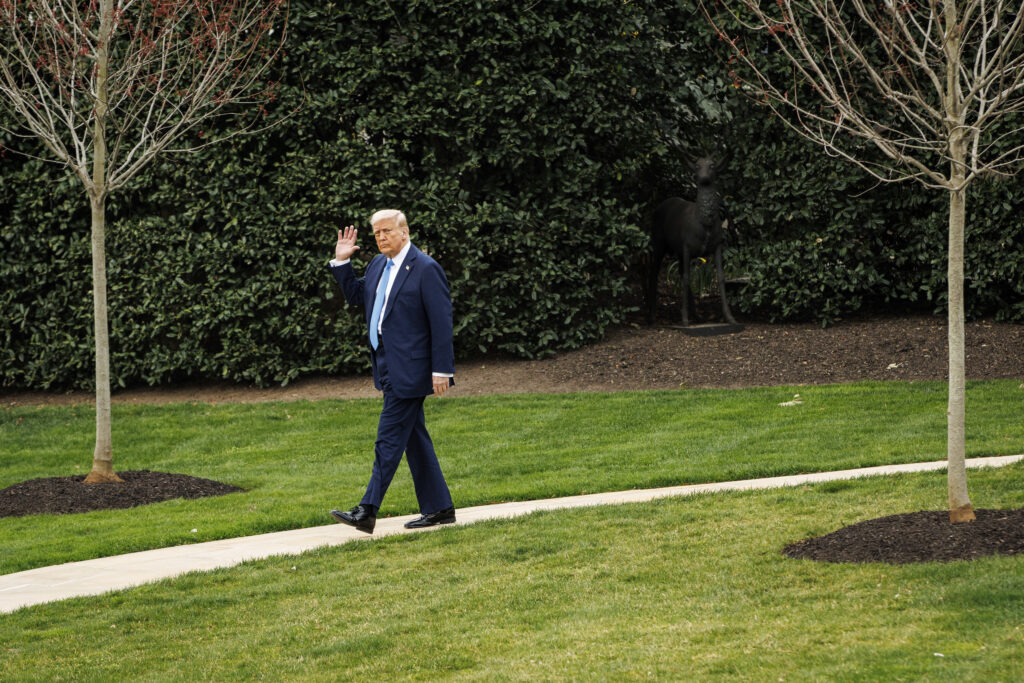
A U.S. judge Thursday blocked federal agencies from carrying out key parts of President Donald Trump’s sweeping executive order on elections.
The Democratic Party, the League of United Latin American Citizens, the League of Women Voters Education Fund and others are challenging Trump’s order, calling it an unprecedented assault on states’ constitutional authority to run their own elections, and warning that it could disenfranchise large numbers of voters.
District Judge Colleen Kollar-Kotelly, appointed by former President Bill Clinton, granted the groups’ request for a preliminary injunction against several parts of Trump’s order, though she allowed other provisions to remain in effect.
Kollar-Kotelly suggested that the order vastly exceeded the scope of the president’s constitutional powers.
“The President is free to state his views about what policies he believes that Congress, the EAC, or other federal agencies should consider or adopt,” the judge wrote. “But in this case, the President has done much more than state his views: He has issued an ‘Order’ directing that an independent commission ‘shall’ act to ‘require’ changes to an important document, the contents of which Congress has tightly regulated.”
“Our Constitution entrusts Congress and the States — not the President — with the authority to regulate federal elections,” the judge added.
Among its many changes, Trump’s order directed the U.S. Election Assistance Commission (EAC) — an independent bipartisan agency — to change a federal voter registration form to require eligible voters to show proof of citizenship.
Kollar-Kotelly said EAC commissioners and other senior commission officials are barred from taking steps to add a proof of citizenship requirement to the form. She said plaintiffs are likely to prevail on their claim that the citizenship requirement is unconstitutional.
The requirement would bar millions of voters who lack easy access to citizenship documents from using the National Mail Voter Registration Form and could force states to rapidly shift their registration procedures. If states don’t or can’t comply, Trump’s order directs the EAC to punish them by withholding federal funding.
The Trump administration argued against the preliminary injunction by claiming that the government has not taken any steps to implement the citizenship requirement.
But the Democratic Party last week presented a letter in a court filing — first reported by Democracy Docket — that suggested the EAC had begun to do so by asking states for input on how to implement the requirement. (The Democratic Party is represented in the case by Elias Law Group (ELG). ELG Firm Chair Marc Elias is the founder of Democracy Docket.)
“In short, the letter reveals that — contrary to Defendants’ representations to the Court—the EAC has, in fact, already begun to implement [the citizenship requirement],” Kollar-Kotelly said.
The judge added that the letter also indicates that the EAC is interpreting the executive order as an “instruction” and not a suggestion as the Trump administration argued in court.
The EAC’s Standards Board, which is composed of over 100 state and local election officials, held a hearing in North Carolina Thursday to discuss the implementation of Trump’s order, according to the meeting agenda.
The judge denied plaintiffs’ request to halt provisions directing Attorney General Pam Bondi to “take all necessary action” against any states that count absentee or mail-in ballots received after Election Day and directing the EAC to withhold federal funding from states that count votes they received after Election Day.
The judge said the objections against those provisions were premature or should be brought by states. Democratic attorneys general in 19 states have challenged the mail voting provisions in their own lawsuit against Trump’s order.
For now, Kollar-Kotelly also declined to bar federal agencies from giving state officials access to federal systems to verify the citizenship or immigration status of people registering to vote or who are already registered. She also declined to block Elon Musk’s Department of Government Efficiency from reviewing states’ public voter registration lists.
However, the judge warned that could change if plaintiffs show that the agencies and DOGE have “a specific, imminent plan” to violate the Privacy Act and other federal laws.
This is a breaking news story. Please check back for additional information.
